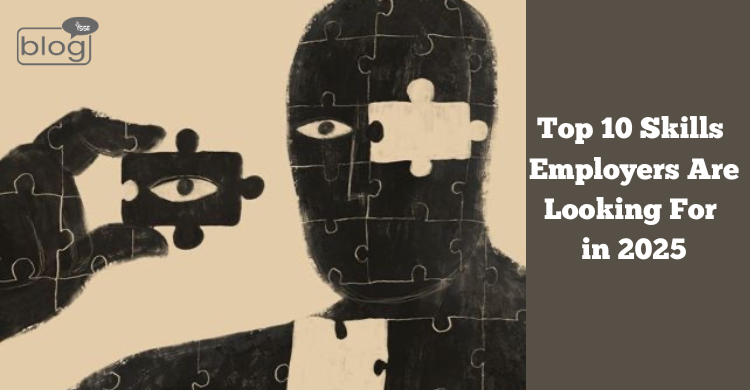Work-life is changing continually with changes in the skill requirements that potential employers look for. It becomes important to know which skills in demand will be required in 2025. Hence, the pace at which you prepare for these skills sets your accomplishments for the future. What, therefore, would you like to work on? Here are some skills that would likely win employers hearts by 2025:
- Solving complicated problems: It is one of the most important talents in existing times, whereby understanding complex challenges, root cause identification, and at which point comes up with an effective solution. Mixing brainstorming with a high degree of critical thinking or creativity and a structured approach to solving problems, probably outside the box, considering different perspectives, and preparing for problems with no easy answers would be the characteristics of this skill set.
- Critical Thinking and Analysis: In an information-overloaded world, these are skills that individuals need to be able to rise above the noise and locate the best sources. Good employers would want people to be able to assess given material dispassionately, identify biases, and come to fair conclusions. This set of skills allows you to make informed contributions to discussions and decisions.
- Creativity and Innovation: Companies need creative thinkers and innovators for a fast-paced, ever-changing world. It means going against the current and bringing in new ideas and changes. If you treasure creativity and focus on constant improvement, you will rise above the crowd.
- Emotional intelligence (EQ): Consideration may be given to emotional intelligence in the workplace now more than ever—an area where the passing on of technical knowledge does not render its place. It contains self-awareness, empathy, social skills, and emotional management concerning oneself and others. Strong emotional intelligence enhances positive relationships and teamwork and navigates challenging social scenarios.
- Communication and collaboration: Communication skills refer to the art of expressing opinions in a clear and concise manner, using verbal and written means. Employers are more inclined to consider candidates who can express their ideas, listen actively, and cooperate with others. The premises of strong communication include teamwork, leadership, and forming consensus.
- Digital literacy and technology skills: Furthermore, in the digital context, knowledge of technology encompasses a variety of requirements, ranging from basic software and hardware competencies to advanced-level expertise in areas such as AI, ML, and data analytics. Remaining up to date with emerging technologies will be a gateway for job seekers in the ever-evolving marketplaces.
- Adaptability and resilience: Those who can adapt to change and reassemble themselves after crises are key to today’s rapidly changing corporate culture. Employers, thus, seek people who are held in flexibility, welcome new experiences, and deal with ambiguity and uncertainty. Having that traction for developing resilience and a growth mindset will be much needed if we are to overcome the approaching challenges.
- Leadership and Influence: It is essential to value every skill you possess, if not for purpose but for general fulfillment and well-being. Not limited to influencing others’ decisions and inspiring them, it also includes the ability to initiate action into a course of sacrifices. Elevating your potential as a leader will allow the organization to appreciate your contribution in a better way.
- Cultural Intelligence: Due to advances in technology, global interdependency is growing day to day; consequently, the importance of cultural intelligence is growing. This implies being aware of and respecting differing cultures, communicating across cultures, and adjusting techniques accordingly to suit diversified work environments. Cultural sensitivity and awareness would become critical attributes for finding acceptance in this globalized world.
- Data Analysis and Interpretation: With the surge of data, the importance of data analysis and interpretation has further risen. Organizations need employees who interpret data and recognize patterns and trends to utilize data to establish facts for consideration in decision-making. Gaining data literacy skills will stand in good stead on the employability front. Bidding on these employability skills will give you an extra edge.
In conclusion, the skills employers are going to be looking for in 2025 go beyond technical prowess; they entail a mix of cognitive ability, interpersonal skills, and digital literacy. By concentrating on these top ten skills, you’ll be paving your way towards success in the future of work and becoming a highly demanded candidate. So remember: learning never stops, and always keep tuning your skills for the ever-evolving needs in the industry. The future of work is ever-changing; it will be those willing to embrace this change and grow these core skills that will prosper in the years ahead.
To read more blogs like this, click here.
Writer
Mahfuza Amir Ela
Intern, Content Writing Department
YSSE

